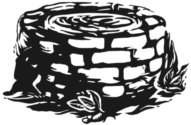Articles, News, and Commentary
2025 Alexander Pope Award Announcement
January 05, 2026
Pierian Staff
File Under: News
The Pierian Volume 3 Now Available
December 29, 2025
Pierian Staff
File Under: News
September 06, 2025
Max Roland Ekstrom
File Under: News
September 06, 2025
Max Roland Ekstrom
File Under: Commentary
September 05, 2025
Max Roland Ekstrom
File Under: News
September 05, 2025
Max Roland Ekstrom
File Under: Commentary
More Commentary
February 01, 2025Elise Paschen in Review
November 26, 2024
Three Pillars
November 25, 2024
Interpreting the Tradition
November 25, 2024
Derek Walcott’s White Egrets: lifelong learning
November 25, 2024
The post-confessionalism of Louise Glück
November 25, 2024
Don't Post it in the Forum
November 25, 2024
The Tribe of Ben
November 25, 2024
Li Young Lee's Debut
November 25, 2024
The Poetics of Plonk
November 25, 2024
In Translation
November 25, 2024
Poets-in-Chief
November 25, 2024
Ion's Profession
More News
May 16, 2025Good Grievance
April 05, 2025
Domino Effect
February 15, 2025
Top Poet: The Next Hit Show?
January 19, 2025
Rise of the Machines
December 30, 2024
Our Poetry Community
December 20, 2024
2024 Alexander Pope Award Winner
June 08, 2024
Featured Poet: David Elliot Eisenstat
April 01, 2024
Simul Subs All April
February 20, 2024
February Featured Poet: Zachary Daniel
January 14, 2024
January Featured Poet: Adam Haver
December 16, 2023
Congratulations to Jonathan Ukah
December 01, 2023
Q&A With Editor Max Roland Ekstrom
November 14, 2023
Winter Simul Submissions
October 26, 2023
Q&A with Editor Keeley Schell
September 21, 2023
Nine Issues. 43 Poems. 26 Poets.
September 15, 2023
September Featured Poet: Lilith Morgan Elliot
August 10, 2023
August Featured poet: Paul Jaskunas
June 10, 2023
June/July Featured poet: Zeyu Ma
June 09, 2023
Summer Reading Period Now Open!
May 08, 2023
May Featured Poet: Phil Montenegro
April 09, 2023
April Featured poet: Kim Malinowski
March 31, 2023
Lit Mag News Showcases *The Pierian*'s Approach
March 12, 2023
March Featured Poet: Devon Brock
March 07, 2023
Pierian Poet Adam Haver Wins Willie Morris Award
February 20, 2023
Tribute Contest
February 13, 2023
Febuary Featured poet: Mark J. Mitchell
February 06, 2023
Submissions Open for Spring 2023
January 22, 2023
January Featured poet: Jonathan Chibuike Ukah
January 14, 2023
Charles Simic, Explorer of Dusk
December 01, 2022
December Featured poet: Judith Janoo
November 13, 2022
Issue 1.1 Drops December 1
October 13, 2022
Share Your Verse With the World
